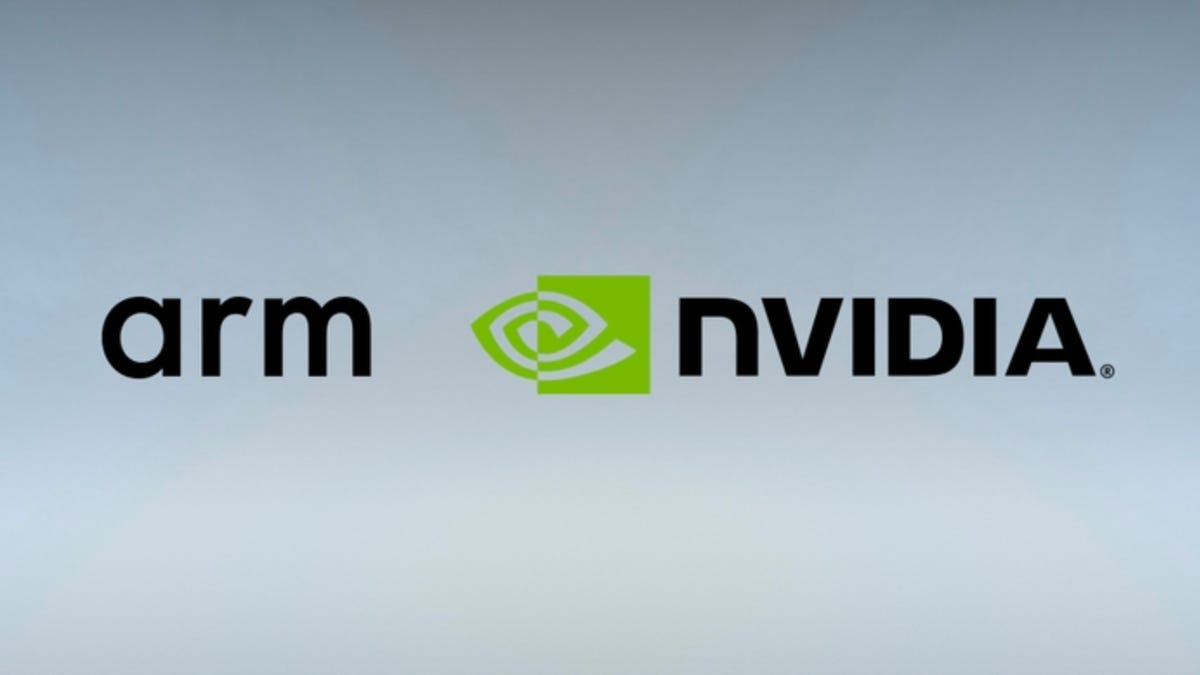FTC suit says Nvidia's $40B Arm acquisition would hurt rival chipmakers
The FTC's lawsuit comes just after the UK launched a six-month investigation of the graphics chip giant's acquisition attempt.

Nvidia announced the agreement with Arm in September 2020.
The US Federal Trade Commission said Thursday that it's suing to block Nvidia's takeover of chip designer Arm. The deal, worth $40 billion, would give Nvidia "control over the computing technology and designs that rival firms rely on to develop their own competing chips," according to the FTC.
The FTC alleges the combined Nvidia-Arm company "would have the means and incentive to stifle innovative next-generation technologies, including those used to run data centers and driver-assistance systems in cars."
"Tomorrow's technologies depend on preserving today's competitive, cutting-edge chip markets," said FTC Bureau of Competition Director Holly Vedova. "This proposed deal would distort Arm's incentives in chip markets and allow the combined firm to unfairly undermine Nvidia's rivals."
Arm licenses chip designs and related technology to companies like Apple, Samsung and Qualcomm. Nvidia's acquisition would give new reach to Nvidia, which has done well with chips that accelerate graphics and AI but not the central processors designed by companies like Intel, Qualcomm and Apple. But it's raised hackles with Arm licensees, many of which compete directly with Nvidia and are leery of Nvidia's promises to preserve Arm's independence and neutrality.
Nvidia will "work to demonstrate that this transaction will benefit the industry and promote competition," the company said in an emailed statement. "Nvidia will invest in Arm's R&D, accelerate its road maps and expand its offerings in ways that boost competition, create more opportunities for all Arm licensees and expand the Arm ecosystem," the spokesperson said. "Nvidia is committed to preserving Arm's open licensing model and ensuring that its IP is available to all interested licensees, current and future."
The FTC suit arrived after the European Union said in October it'll investigate the deal. A skeptical UK government said in November it will launch its own six-month investigation of the deal, too.
Nvidia CEO Jensen Huang "is not typically known for backing down," Bernstein Research analyst Stacy Rasgon said in a report Thursday. Given that the US is likely working with competition authorities in other countries, the prospects for success are "looking somewhat dim at the moment," he said.
Nvidia announced its intended takeover in September 2020, saying at the time it would "create the premier computing company for the age of artificial intelligence."



